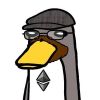10 Best-Selling Cosmology Books Millions Love
Explore Cosmology Books endorsed by John Scalzi, Alexandra Petri, and Anthony Doerr, featuring best-selling titles that blend expert insight with reader acclaim.




There's something special about books that both critics and crowds love, especially in a field as vast and intriguing as Cosmology. Millions have turned to a handful of best-selling books that unlock the universe's deepest mysteries with clarity and insight. Today, exploring Cosmology remains vital as we seek to understand the cosmos's origins, structure, and ultimate fate—questions that resonate far beyond academia.
Consider the voices guiding these popular works: Anthony Doerr, a Pulitzer Prize-winning author, praises Brian Clegg's "Before the Big Bang" for its candid exploration of cosmic origins. John Scalzi, a celebrated science fiction writer, finds Katie Mack's "The End of Everything" to be a beautifully lucid guide to the universe's fate. Their endorsements reflect a blend of storytelling mastery and scientific rigor that has captivated countless readers.
While these popular books provide proven frameworks, readers seeking content tailored to their specific Cosmology needs might consider creating a personalized Cosmology book that combines these validated approaches. Tailored content can address your unique background and interests, making the universe's complexities more accessible and relevant.
Recommended by Anthony Wassano
Ethereum educator and angel investor
“Recently read 'A Brief History of Time' by Stephen Hawking. The book is *dense* and introduces a lot of concepts that I had never heard of before but it was still an amazing read to get a nice understanding of cosmology and physics. Recommended read of course :)” (from X)
by Stephen Hawking··You?
by Stephen Hawking··You?
Stephen Hawking, renowned Lucasian Professor of Mathematics at Cambridge, challenges the conventional wisdom that cosmology must be inaccessible to non-specialists. In this book, you explore the origins and structure of the universe, delving into black holes, the big bang, and the nature of time itself with clarity that bridges complex physics and everyday understanding. Chapters unfold topics like antimatter and the possibility of multiple dimensions, inviting you to grasp profound scientific ideas without requiring advanced math. This book suits anyone curious about the universe's deepest mysteries, providing a conceptual toolkit rather than technical formulas.
Recommended by John Scalzi
Author and science fiction writer
“Weird science, explained beautifully.” (from Amazon)
by Katie Mack··You?
by Katie Mack··You?
What if everything you thought about the universe's fate was open to question? Katie Mack, a theoretical astrophysicist and assistant professor at North Carolina State University, draws from her deep engagement with cosmology to explore five distinct scenarios for the universe's end, including the Big Crunch and Vacuum Decay. You’ll gain insights into complex ideas like quantum mechanics and string theory, all presented with wit and accessible explanations, especially in chapters detailing cosmic finales like the Big Rip. This book suits anyone curious about the cosmos, from science enthusiasts to those wanting a fresh perspective on our universe’s ultimate destiny.
by TailoredRead AI·
This tailored book explores cosmology by weaving together widely validated concepts with your personal interests and background. It covers key cosmological principles, from the universe's origins and structure to its possible futures, providing a focused learning journey that reflects what millions of readers have found insightful. By concentrating on methods that have consistently delivered understanding, this book offers a tailored exploration that suits your specific learning goals and experience level. The personalized content ensures you engage deeply with the cosmological themes most relevant to you, making complex cosmic phenomena accessible and meaningful.
Recommended by Anthony Doerr
Pulitzer Prize-winning author
“Indeed, the existence of so many things, from dark matter to black holes to wormholes all has to be inferred. The Big Bang, too, is only provisional and seems to be waiting for a more graceful model to replace it. In Clegg’s words, the Big Bang theory “has the feeling of something held together with a Band-Aid. Whether what came before our universe was another universe or nothing, or something else yet unconsidered, for now the most accurate answer might be: We just don’t know.” (from Amazon)
by Brian Clegg··You?
by Brian Clegg··You?
When Brian Clegg realized the Big Bang theory still left many questions unanswered, he traced the origins and evolution of cosmological thought from ancient myths to modern debates. You’ll explore how Herschel’s galaxy discoveries and theories about black holes shaped our understanding of the universe’s beginnings. Chapters unpack competing ideas like cyclical universes and black hole cosmology, challenging you to reconsider what "before" the Big Bang might mean. This book suits anyone curious about the scientific and philosophical questions behind our cosmic origins, especially if you appreciate a clear narrative that doesn’t shy away from uncertainty.
Recommended by The Washington Post
“[Hawking is] a symbol of the soaring power of the human mind.” (from Amazon)
by Stephen Hawking··You?
by Stephen Hawking··You?
Stephen Hawking, the renowned Lucasian Professor of Mathematics at Cambridge, crafted this book to share his final reflections on humanity's biggest questions, blending his deep expertise in physics and cosmology with pressing global concerns. You’ll explore topics ranging from the origins of the universe to the future threats facing our species, like climate change and artificial intelligence, grounded in Hawking’s characteristic clarity and wit. The chapters tackle subjects such as the existence of God and space colonization, offering you a wide lens on both scientific and philosophical dilemmas. This book suits readers curious about the intersection of cosmology with human survival and future possibilities, providing insights that stimulate both thought and debate.
by Michio Kaku·You?
What if everything you knew about the universe was about to change? Michio Kaku, a theoretical physicist known for his ability to demystify complex science, explores radical ideas in cosmology such as the multiverse and M-theory. You’ll gain insight into cutting-edge discoveries from satellites like WMAP and Hubble, and learn how these reshape our understanding of cosmic origins and fate. Chapters on parallel universes and the potential for inter-dimensional travel stretch the imagination while grounding concepts in current scientific research. This book suits you if you’re curious about the big questions of existence and want to grasp the science behind them without heavy technical jargon.
by TailoredRead AI·
by TailoredRead AI·
This tailored book explores key concepts of cosmology with a focus on your interests and background, providing a clear and engaging path to understanding the universe. It examines cosmic origins, structure, and fate through a step-by-step approach designed to match your learning pace and objectives. By combining widely valued insights with personalized content, it reveals complex ideas like the Big Bang, black holes, and multiverse theories in a way that feels relevant and accessible. The tailored format ensures you dive deeply into topics that spark your curiosity, making your cosmology learning experience both efficient and rewarding.
by Stephen Hawking, Leonard Mlodinow·You?
by Stephen Hawking, Leonard Mlodinow·You?
Stephen Hawking and Leonard Mlodinow crafted this edition to offer a clearer, more approachable explanation of complex cosmological ideas that often seem out of reach. You’ll navigate topics from the fabric of space-time to the search for a unified theory, with updated insights like string theory and a richly illustrated guide that brings abstract concepts to life. This book suits anyone curious about the universe’s grand design, especially those who found the original work challenging but crave a deeper understanding without sacrificing precision. Its concise chapters and vivid visuals make intricate physics more accessible, though readers seeking detailed equations might look elsewhere.
by P. J. E. Peebles··You?
by P. J. E. Peebles··You?
P.J.E. Peebles's decades of pioneering research in astrophysics led him to craft this detailed examination of the universe's structure and origins. You gain insight into foundational concepts like the expanding universe, the geometry of spacetime, and the evolution of galaxies, all explained with clarity suitable for those with undergraduate physics knowledge. The book balances historical context with cutting-edge observations, such as the use of new telescopes and detectors, to deepen your understanding of physical cosmology's current landscape. Whether you are a student beginning your journey or a scientist in a related field, this volume offers a thorough exploration without oversimplifying complex theories.
by Stephen Hawking, Leonard Mlodinow··You?
by Stephen Hawking, Leonard Mlodinow··You?
Stephen Hawking and Leonard Mlodinow, both renowned physicists, crafted this book to confront some of the most profound questions about our universe using the latest scientific insights. You'll explore how quantum theory challenges traditional cause-and-effect assumptions and introduces the concept of a multiverse where countless universes exist simultaneously. The authors don't just recount scientific facts; they invite you to reconsider reality itself through their "model-dependent" theory and delve into M-theory, potentially the ultimate explanation of everything. This book suits anyone curious about cosmology's cutting edge, but its abstract concepts may challenge those new to physics.
D. Bailin's decades of experience in theoretical physics led to this focused exploration of cosmology through the lens of gauge field theory and string theory. You’ll gain a clear understanding of how the universe’s early phase transitions and spontaneous symmetry breaking shaped its evolution, with detailed discussions on relic particles like baryons and neutrinos. The book also dives into supersymmetric and supergravity theories, linking these to the inflationary period and black hole entropy from string theory perspectives. This text is particularly suited if you are a graduate student or physicist seeking a particle physics approach to cosmology rather than a purely observational one.
The methods Hermann Bondi developed while advancing the Steady State Theory provide a unique lens on cosmology's evolution as a physics discipline. This book delves into various cosmological theories, such as Newtonian and relativistic cosmology, offering in-depth discussions that reveal the scientific debates of the mid-20th century. You'll gain insight into how cosmology distinguished itself from other fields and explore the intellectual journey that shaped modern understanding. It's particularly suited for those interested in the history and philosophy of science, as well as anyone seeking a deeper grasp of cosmological thought beyond mere concepts.
Proven Methods, Personalized for You ✨
Get popular Cosmology insights tailored to your interests and background.
Trusted by thousands of Cosmology enthusiasts worldwide
Conclusion
These ten books collectively offer a rich tapestry of Cosmology, from foundational theories to speculative futures. Their widespread acclaim and expert endorsements affirm their value for anyone eager to grasp the cosmos's wonders. If you prefer proven methods, start with Stephen Hawking's "A Brief History of Time" and "A Briefer History of Time" for accessible introductions. For validated, forward-looking perspectives, combine "Parallel Worlds" and Katie Mack's "The End of Everything."
Advanced readers may dive into P.J.E. Peebles's "Principles of Physical Cosmology" or D. Bailin's particle physics approach in "Cosmology in Gauge Field Theory and String Theory." Meanwhile, Hermann Bondi's "Cosmology" offers a historical lens on the discipline's evolution.
Alternatively, you can create a personalized Cosmology book to combine proven methods with your unique needs. These widely-adopted approaches have helped many readers succeed in unraveling the universe's mysteries.
Frequently Asked Questions
I'm overwhelmed by choice – which book should I start with?
Start with Stephen Hawking's "A Brief History of Time" for a foundational yet accessible introduction that many readers and experts recommend. It sets the stage for deeper exploration without overwhelming complexity.
Are these books too advanced for someone new to Cosmology?
Not at all. Books like "A Briefer History of Time" and "Before the Big Bang" are designed to clarify complex ideas for curious beginners, balancing depth with readability.
What's the best order to read these books?
Begin with accessible overviews like Hawking's works, then explore specialized topics such as the multiverse in "Parallel Worlds" or universe endings in "The End of Everything" to build your understanding progressively.
Do I really need to read all of these, or can I just pick one?
You can pick based on your interests—whether origins, fate, or theory. Each book stands alone but together they provide a fuller picture of Cosmology’s scope.
Are any of these books outdated given how fast Cosmology changes?
While some foundational texts date back decades, their core concepts remain vital. Recent works like Katie Mack's keep you current with evolving theories and discoveries.
How can a personalized Cosmology book complement these expert recommendations?
Personalized books tailor proven expert insights to your background and goals, making complex Cosmology concepts more relevant and easier to grasp. They complement popular books by focusing on what matters most to you. Explore creating your own Cosmology book for a custom learning journey.
📚 Love this book list?
Help fellow book lovers discover great books, share this curated list with others!
Related Articles You May Like
Explore more curated book recommendations









